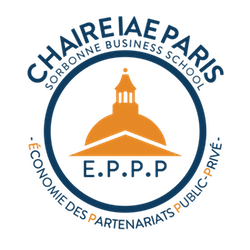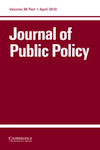Posts de Stéphane Saussier
« Performance and Risks in the Defense Procurement Sector »
Journal of Public Policy, 30(2), 1-19.
Abstract : Risks that emerge during the implementation and enforcement stages of defense procurement help explain procurement outcomes. Adverse events have impacts on the timing, cost and quality of goods supplied. The procurement process is analyzed on the basis of an original dataset covering 48 defense procurement contracts signed by the French Ministry of Defense with 18 European contractors. Contractual problems create the most adverse events in this sector, while technological risk is the second most significant risk. Although opportunism takes various forms, it is found only rarely in these defense contracts.
Lire la suite
Hazards in Transfering Knowledge and Contractual Architecture: The Case of Payment Schemes in Technology Licensing Agreements
Numéro: 2010-5 Hazards in Transfering Knowledge and Contractual Architecture: The Case of Payment Schemes in Technology Licensing Agreements Christian Bessy (IDHE, CNRS), Eric Brousseau (Economix, Université Paris X) & Stéphane Saussier (IAE Paris) Abstract: This article provides an empirical assessment of payment schemes implemented in technology licensing agreements. Following a new institutional and resource-based view analysis, we…
Lire la suiteAuction versus Negotiation in Public Procurement: Looking for Empirical Evidence
Numéro: 2010-4 Auction versus Negotiation in Public Procurement: Looking for Empirical Evidence Eshien Chong (ADIS – Paris 11), Carine Staropoli (CES, Paris I Panthéon-Sorbonne), Anne Yvrande-Billon (CES, Paris I Panthéon-Sorbonne) Abstract: The relative efficiency of auctions and negotiations is still a puzzle in the literature. While auctions are the prescribed procedures and the most used ones for…
Lire la suite« Opportunisme ou équité ? Le cas des contrats d’approvisionnement de défense »
Revue Française d’Economie, janvier 2010, n°24(3), p.195-226
Résumé : comment sont répartis les surcoûts qui résultent de la matérialisation de risques dans le cadre de relations contractuelles ? Nous proposons une réponse qui combine théorie des coûts de transaction et approche en termes d’équité, de manière à expliquer pourquoi des stratégies coopératives de répartition du type 50-50 prévalent sur la propension des partenaires à se comporter de façon opportuniste.
Lire la suiteInterfirm Cooperation in Strategic Relationships: The Role of Formal Contract
Numéro: 2010-2 Interfirm Cooperation in Strategic Relationships: The Role of Formal Contract Jean Beuve (Chaire EPPP ) and Stéphane Saussier (Chaire EPPP) Abstract: In this paper, we use a large database of more than 3700 strategic relationships in force between French firms in 2003 to study the way they achieve cooperation. We find that cooperation is enhanced by…
Lire la suiteThe Dark and Bright Sides of Renegotiation: An Application to Transport Concession Contracts
Numéro: 2010-1 The Dark and Bright Sides of Renegotiation: An Application to Transport Concession Contracts Julie de Brux (Chaire EPPP & Vinci) Abstract: Renegotiations of public-private partnerships have recently been the subject of much attention. Economists regularly analyse them through the lens of ‘hold up’ theories. According to these models, renegotiations are a problem to be avoided:…
Lire la suiteMiguel AMARAL
Modes d’Organisation et Performances : Le Cas du Transport Public Urbain en Europe Novembre 2009
Lire la suite« Appels d’offres concurrentiels et avantage au sortant, une étude empirique du secteur du transport public urbain en France »
Anne Yvrande-Billon, 2009, Revue d’Economie Industrielle, 2009, Vol. 127, 1-19, sous presse. Abstract: Cet article porte sur les déterminants de la reconduction des contrats de services publics attribués par appels d’offres concurrentiels. Partant de la constatation que ces contrats changent très rarement de mains, on s’interroge sur les raisons de cette stabilité des prestataires de services…
Lire la suite« Intensité concurrentielle et transparence des appels d’offres »
Article paru dans la revue Transport/Environnement/Circulation, Septembre 2009, N°203, 41-43.
Lire la suiteContract Renewal as an Incentive Device – An Application to the French Urban Public Transport Sector
Contract Renewal as an Incentive Device – An Application to the French Urban Public Transport Sector
Axel GAUTIER (HEC-ULg and CORE, Université Catholique de Louvain) & Anne YVRANDE-BILLON (CES, Université Paris 1 Sorbonne)
In the French urban public transport industry, services are often delegated to a private firm by the mean of a fixed-term regulatory contract. This contract specifies the duties of the firm and a financial compensation. When it expires, a new contract is awarded, possibly to a different operator. There are three types of commonly used contracts: cost-plus, gross cost and net cost contracts. In this paper, we analyse the incentives for the operator to reduce its cost. These incentives come from both the profit maximization during the current contract and the perspective of contract renewal. In our model, the amount of cost-reducing effort depends on the contract type and the time remaining till contract expiration. We use a sample of 124 French urban public transport networks covering the period 1995-2002 to test our predictions. Our proxy for the cost reducing effort is technical efficiency. The data largely confirm the importance of contract type on performances and the incentive effect of contract renewal.





